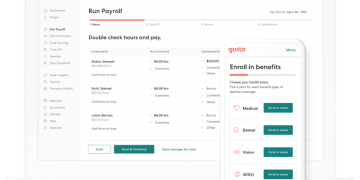Fatigued? Who isn’t these days? Zoom fatigue? Been there, done that!
Another type of fatigue you’ve probably experienced — but may not realize it — is decision fatigue.
This common occurrence happens to almost everyone at least once in a while, and luckily you can learn to deal with decision fatigue.
As the name implies, “decision fatigue is when people have taxed their ability to make decisions or use self-control because they already made decisions,” explains Kathleen Vohs, Ph.D., marketing professor at University of Minnesota’s Carlson School of Management.
“It comes about after people have made many small decisions or decisions with significant trade-offs,” she adds.
What Is Decision Fatigue Exactly?

Think about your brain as a muscle in a workout, suggests licensed mental health counselor Justin Baksh, LMHC, MCAP, chief clinical officer of Foundations Wellness Center.
After too many reps, you cannot do even one more squat with good form.
Your brain works the same way, except rather than reps, you’re making decisions.
That’s why — by the end of a day of determining not only what to wear and eat for meals and what workout to do but also thinking through strategies about work, healthcare for loved ones, and schooling for kids — you can’t decide what to watch on Netflix.
Your brain is exhausted.
Do I Have Decision Fatigue?

Signs of decision fatigue vary from person to person and even day to day.
They can include:
- Not wanting to make any more decisions
- Skipping things that require effort, such as a workout or cooking
- Giving into others’ suggestions more easily. For example, rather than keep brainstorming, you may agree with a coworker’s idea for what to name a new campaign
- Delaying decisions
- Making poor choices
- Easily becoming annoyed or angry
- Struggling to answer “simple” questions due to overthinking, an inability to focus, or cloudy thinking
Just as you can fight fatigue by doing things like eating regularly and staying hydrated, there are easy ways to help you deal with decision fatigue and try to prevent it in the first place.
How to Reduce Decision Fatigue in Daily Life
In the moment, no matter how frazzled you may feel, you can work through decision fatigue.
Try the methods below; each may work in different situations.
- Take a break. Walk a loop around the building, watch a few TikToks, or — best of all — get outside. “Research shows a 30-minute break can help reset people’s decision-making capacity,” Vohs says. “And nature scenes are restorative.”
- Delegate. When appropriate, ask a peer, supervisor, family member, or friend to decide for you. You usually don’t have to be the say-so for every single task.
- Put things off, if you can. Let anything that’s not urgent go on the to-do list for tomorrow or later this week.
Tips to Prevent Decision Fatigue

The main way to reduce decision fatigue is to cut back on the number of choices you have to make.
“People with the best decision-making typically end up that way not because they have the most willpower but rather because they set their lives up to reduce decision fatigue and conserve mental energy for what they identify as most important,” says Kelly Lynch, LCSW, a licensed clinical social worker.
Consider the below tips:
Join a fitness class
Whether you sweat in person or online, “the trainer will decide the exercises for you. You show up and participate,” says Emily Stone, Ph.D., LMFT-S, owner and senior clinician at Unstuck Group.
Or try streaming workouts like 645 or LET’S GET UP! that provide structured workouts and nutrition advice from experts.
Decide in the morning
Schedule important decisions or tasks that require more self-control (aka, the ones you dread doing) in the morning.
“People are more likely to actually do them — and do them well — in the morning as opposed to later in the day when they are tired of making decisions,” Vohs explains.
No more 4 p.m. meetings!
Keep it simple
Wear the same thing or similar things every day to work. Have solid-colored tops and bottoms that you mix and match, and two pairs of shoes.
Another option — set out clothes for work and workouts the night before.
Make a meal plan
Develop a regular schedule for home meals. “For instance, Monday is chicken, Tuesday is beef, Wednesday is pasta, and so on,” Vohs says.
Doing meal prep on the weekends can help take out the decision-making about what to eat.
Schedule smart
Avoid back-to-back meetings when possible.
“By giving time in between to rest and recharge, you’ll be able to enter the next meeting with increased energy,” Lynch says.
Get organized
“It’s hard to think straight when nothing is where it should be. You need a clean, uncluttered environment to function best,” Baksh says.
But first, eat
Don’t make decisions when you’re hungry.
“Studies suggest depleted glucose levels significantly impact a person’s ability to make wise choices,” Lynch says. “By making sure you are fed, you can set yourself up to make healthy choices.”



























